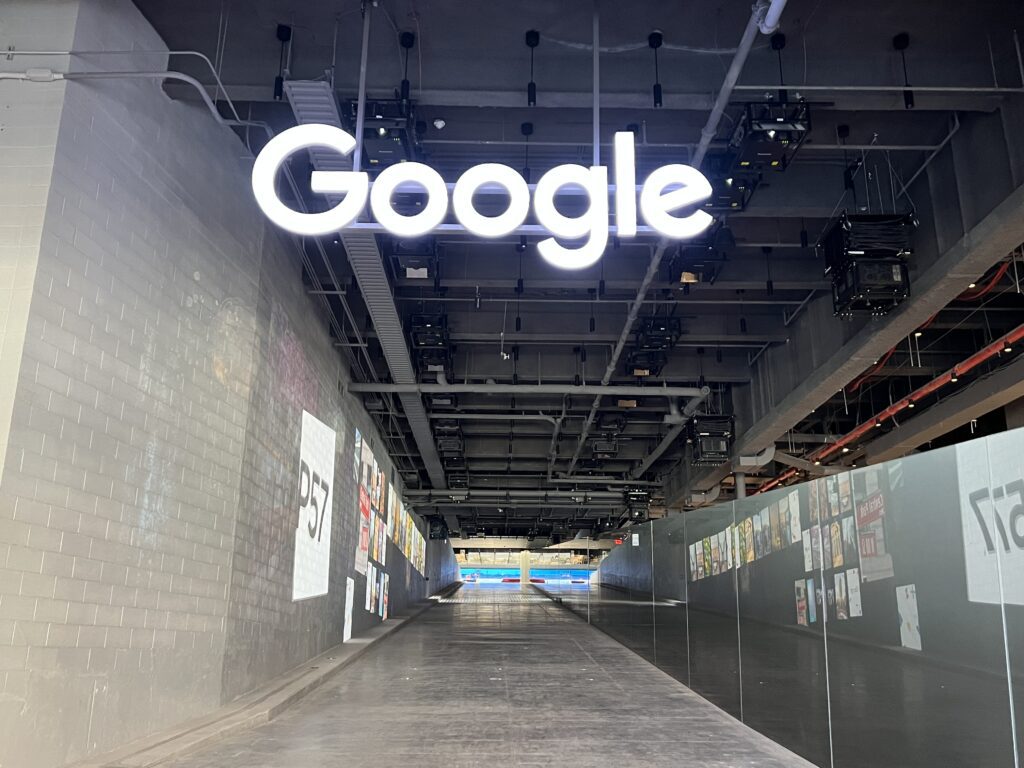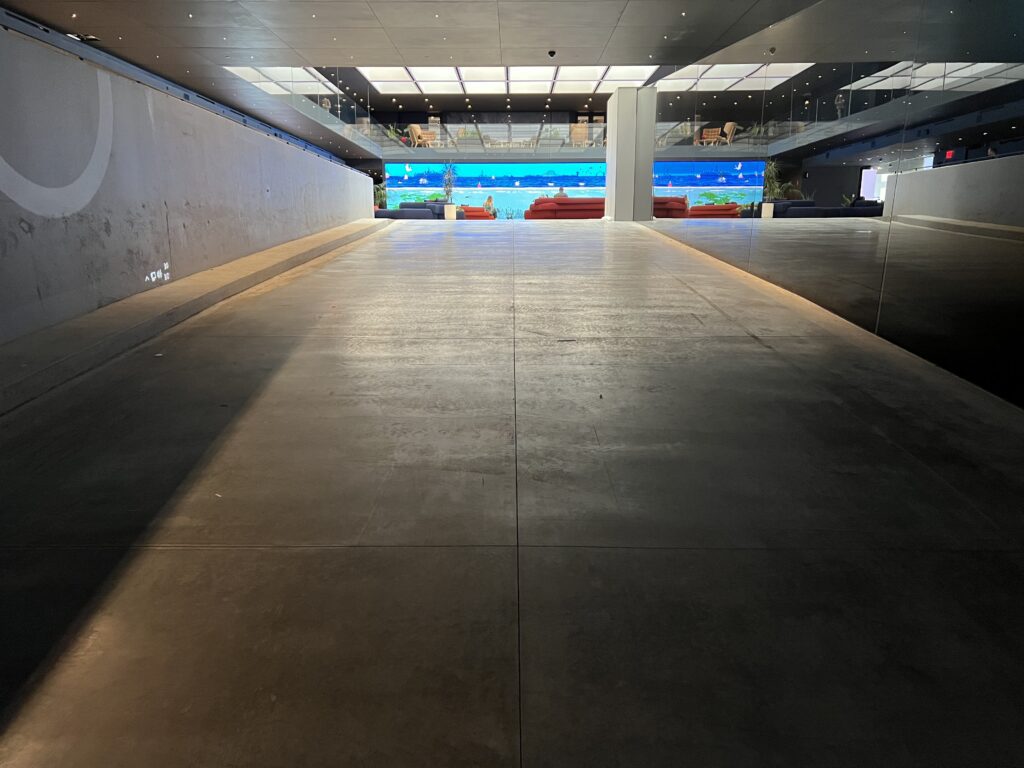
The animated software-driven work Hudson Follies is a site-specific commission by Google for the lobby of their event space occupying Pier 57 along the Hudson River in Chelsea, Manhattan. It explores an alternate, present-day Hudson River estuary in which happy social and biological ecosystems live in harmony, where humans can interact with the water in intimate ways, and where a lot is happening below the surface.
The animated elements emerge primarily in response to algorithmic probability, and the work as a whole is responsive to season, time of day, real-time weather, and tide data, which underscores the geographic and temporal specifics of the riverscape.
The light touch of worldbuilding in Hudson Follies includes extensive use of renewables, the return of barging as a primary form of transport, and plenty of leisure time for a host of species. The curation of Hudson River species—their frequency, population density, migration patterns, and water column depths— is based on research provided by local ecologists and educators who comprise the Hudson River Park’s River Project. There are several historical figures and ghosts in the piece, such as Henry Hudson’s ship, the Halve Maen ( Half Moon) and a mastodon that preceded the formation of the river itself. There are visual puns such as a woman paddling a tree upstream, and a “goose plane”— a chimera celebrating Flight 1549’s emergency landing on the river after being struck by a flock of geese. There are sometimes icebergs in winter, a gaggle of swimmers on the traditional New Year’s Day “polar bear” swim, a bald eagle snagging a fish, and storks carrying new babies across the sky.
A folly is both a lack of good sense and a useless ornamental building (usually in a park or private garden). Henry Hudson, acting on behalf of the Dutch, came upon the Muhheakantuck River on his 1609 voyage to find a northern passage to the Pacific. In addition to the renamed Hudson River, many other topographical features “useful” to European empires were named for Henry Hudson, including Hudson Bay, where the sea explorer was overthrown and set to sea in a small boat, never to be seen again.
We “moderns” are in the center of a Venn diagram that includes human-caused climate change, business-as-usual mental models, and profound polarization. If we rearrange the structures and opportunities of what we can envision, we could redirect pleasure and fantasy towards an ecologically friendly new imagination and way of life.
SITE INSTALLATION PHOTOS:


CLIPS (VIDEO CAPTURES):
Hudson Follies (2022) – January daytime, Pt 1 and 2
Hudson Follies (2022) – January nighttime, Parts 1 and 2
Hudson Follies (2022) – July daytime, Pt 1 and 2
Hudson Follies (2022) – July nighttime, Parts 1 and 2